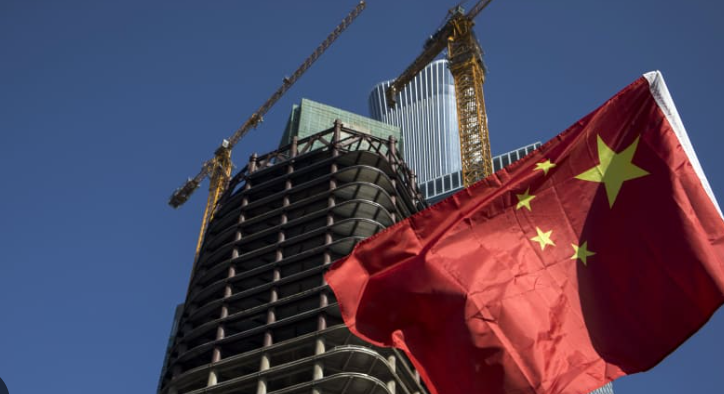# $SPY $AAPL #ChinaManufacturing #PMI #GlobalEconomy #TradeTensions #EconomicOutlook #MarketAnalysis #ChinaNews #StockMarket #Investing
Is China’s Manufacturing Crisis Worsening? How the Latest PMI Miss Affects Global Markets
The latest data on China’s manufacturing sector raises significant concerns, suggesting a deeper crisis than previously anticipated. The Purchasing Managers’ Index (PMI) for October has fallen to a six-month low, signaling that the slowdown in the manufacturing industry is intensifying. This development is crucial for investors and analysts as it could have widespread implications for global markets and trade dynamics.
The October PMI reading missed analysts’ expectations, highlighting the ongoing challenges facing China’s economy. The decline in manufacturing activity is a critical indicator of economic health, and the missed estimates fuel worries about the sustainability of China’s growth. As the world’s second-largest economy, any deterioration in Chinese manufacturing can reverberate through global supply chains and markets.
China’s manufacturing sector has faced mounting pressures due to a combination of factors, including weakened domestic demand, persistent supply chain disruptions, and rising input costs. These issues have been exacerbated by geopolitical tensions, particularly with the United States, as trade relations remain fragile. The recent trade truce between China and the U.S. may offer a moment of relief, yet the underlying economic challenges persist.
Understanding the PMI and Its Implications
The PMI serves as a reliable barometer for economic activity in the manufacturing sector. A reading above 50 indicates expansion, while a figure below that threshold points to contraction. The current PMI reading indicates a contraction, raising alarms about the potential for further economic deceleration. Investors should closely monitor how these trends unfold, as they significantly impact global investment strategies.
In addition to the immediate effects on stock markets, the weaker PMI could also influence central bank policies. The People’s Bank of China may need to consider further monetary easing to stimulate economic activity. However, any measures taken will likely be scrutinized by global investors who remain wary of inflationary pressures and potential currency fluctuations.
Global Market Reactions and Future Outlook
As the news about the PMI spreads, market participants are likely to react. Investors should pay attention to sectors that are directly linked to China’s manufacturing output, including technology and consumer goods. A protracted downturn in manufacturing could lead to reduced earnings forecasts and impact the stock performance of companies reliant on Chinese supply chains.
Additionally, the situation in China has implications for the broader global economy. Countries that are heavily dependent on trade with China may also face economic headwinds. This interconnectedness means that developments in China can have ripple effects, influencing markets and economic policies worldwide.
The recent trade truce may provide some respite, but it is essential for investors to remain vigilant. The underlying economic fundamentals in China need to improve for a sustainable recovery to take hold. As such, analysts will be watching closely for signs of stabilization in manufacturing and broader economic indicators.
For those looking to navigate this complex landscape, staying informed about the latest developments in China’s economy is crucial. This knowledge equips investors to make more informed decisions in a rapidly changing market environment. For additional insights into stock trends and market analysis, explore our stock market section.
In conclusion, the ongoing challenges within China’s manufacturing sector raise significant concerns for both domestic and global economies. The recent PMI miss signals that the crisis is worsening, highlighting the need for careful monitoring and strategic planning in investment approaches. As we move forward, understanding the implications of these economic trends will be vital for success in the financial markets.











Comments are closed.